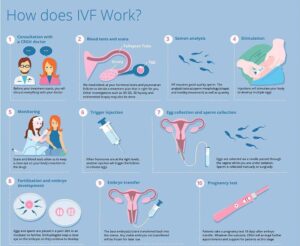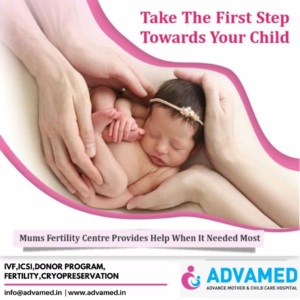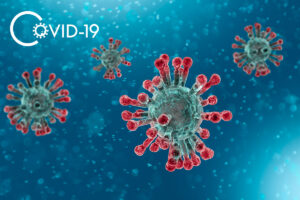Though it’s going to sound odd, your first week of pregnancy is predicated on the date of your last menstrual period. Your last menstrual period is taken into account week 1 of pregnancy, albeit you weren’t actually pregnant yet.
The expected delivery date is calculated using the primary day of your last period. For that reason, the primary few weeks where you’ll not have symptoms also count toward your 40-week pregnancy.
What Bodily Changes Can You Expect During Pregnancy?
Pregnancy brings a spread of changes to the body. they will range from common and expected changes, like swelling and fluid retention, to less familiar ones like vision changes. Read on to find out more about them.
Most women experience changes in their sense of taste during pregnancy. They typically prefer saltier foods and sweeter foods than non-pregnant women. They even have a better threshold for strong sour, salty, and sweet tastes. Dysgeusia, a decrease within the ability to taste, is most ordinarily experienced during the primary trimester of pregnancy.
Certain taste preferences may vary by trimester. Although many ladies experience a dulled sense of taste for a brief period of your time postpartum, they typically regain full taste capability after pregnancy. Some women also experience a metallic taste within the mouth during pregnancy. so all that need is Pregnancy Care with advamed hospital. All these above mentioned things will aggravate nausea and should indicate a nutrient imbalance. Learn more about impaired taste.
7 Foods to Help Your Acid Reflux
Diet and nutrition for GERD
Acid reflux occurs when there’s acid backflow from the stomach into the esophagus. This happens commonly but can cause complications or troublesome symptoms, like heartburn.
One reason this happens is that the lower esophageal sphincter (LES) is weakened or damaged. Normally the LES closes to stop food within the stomach from moving up into the esophagus.
The foods you eat affect the quantity of acid your stomach produces. Eating the proper sorts of food is vital to controlling acid reflux or esophageal reflux disease (GERD), a severe, chronic sort of acid reflux.
None of those foods will cure your condition, and your decision to use these specific foods to appease your symptoms should be supported your own experiences with them.
Vegetables, Ginger, Oatmeal, Noncitric fruits, Lean meats and seafood, Egg whites, Healthy fats
High-fat foods
Fried and fatty foods can cause the LES to relax, allowing more stomach acid to copy into the esophagus. These foods also delay stomach emptying.
Eating high-fat foods puts you at greater risk for reflux symptoms, so reducing your total daily fat intake can help.
The following foods have a high-fat content. Avoid these or eat them sparingly:
french fries and onion rings
full-fat dairy products, like butter, milk, regular cheese, and soured cream
fatty or fried cuts of beef, pork, or lamb
bacon fat, ham fat, and lard
desserts or snacks, like frozen dessert and potato chips
cream sauces, gravies, and creamy salad dressings
oily and greasy foods
Supplements During Pregnancy: What’s Safe and What’s Not
If you’re pregnant, you’ll think that feeling overwhelmed and confused comes with the territory. But it doesn’t need to be so confusing when it involves vitamins and supplements.
If you probably did your extra credit work, we bet you already know that prime mercury seafood, alcohol, and cigarettes are off-limits during pregnancy. What may surprise you is that some vitamins, minerals, and herbal supplements should be avoided also.
Pregnancy increases the necessity for nutrients
During pregnancy, macronutrient intake needs grow significantly. Macronutrients include carbohydrates, proteins, and fats.
For example, protein intake must increase from the recommended 0.36 grams per pound (0.8 grams per kg) of weight for non-pregnant women to 0.5 grams per pound (1.1 grams per kg) of weight for pregnant women.
You’ll want to include protein in every meal and snack to satisfy your needs but still, if you are confused you need to discuss it with a specialist who will explain to you about Pregnancy Care so you must visit advamed hospital for pregnancy care.
The requirement for micronutrients, which include vitamins, minerals, and trace elements, increases even more Trusted Source than the necessity for macronutrients.
While some people are ready to meet this growing demand through a well-planned, nutrient-dense eating plan, it are often a challenge for others.
You may got to take vitamin and mineral supplements for various reasons, including:
Nutrient deficiencies: Some people may have a supplement after a biopsy reveals a deficiency during a vitamin or mineral. Correcting deficiencies is critical, as a shortage of nutrients like folate has been linked to birth defects.
Hyperemesis gravid arum: This pregnancy complication is characterized by severe nausea and vomiting. It can cause weight loss and nutrient deficiencies.
Dietary restrictions: Women who follow specific diets, including vegans and people with food intolerances and allergies, may have to supplement with vitamins and minerals to stop micronutrient deficiencies
Smoking: Although it’s critical for mothers to avoid cigarettes during pregnancy, those that still smoke have an increased need Trusted Source for specific nutrients like vitamin C and folate.
Multiple pregnancies: Women carrying quite one baby have higher micronutrient needs than women carrying one baby. Supplementing is usually necessary to make sure optimal nutrition for both the mother and her babies.
Genetic mutations like MTHFR: Methylenetetrahydrofolate reductase (MTHFR) may be a gene that converts folate into a form that the body can use. Pregnant women with this point mutation may have to supplement with a selected sort of folate to avoid complications.
Poor nutrition: Women who under eat or choose foods that are low in nutrients may have to supplement with vitamins and minerals to avoid deficiencies.
In addition, experts like those at the American College of Obstetricians and
Gynecologists (ACOG) recommend that each one pregnant people take a prenatal vitamin and vitamin Bc supplement. this is often advised to fill nutritional gaps and stop developmental abnormalities at birth like rachischisis.
Depending on your personal circumstances, be prepared to require on the task of adding supplements to your daily routine if directed by your healthcare provider.
13 Foods to Eat When You’re Pregnant
Pregnant? Hangry? trying to find a snack which will make your tummy and your baby happy? You’re probably hearing it a lot: Eating nutritious foods while pregnant is important.
We’re here to form your pantry into a one-stop shop of healthy and delicious foods which will give your baby the simplest start to life.
When building your healthy eating plan, you’ll want to specialize in whole foods that offer you higher amounts of the great stuff you’d need when not pregnant such as:
protein
vitamins and minerals
healthy sorts of fat
complex carbohydrates
fiber and fluids
Here are 13 super nutritious foods to eat when you’re pregnant to assist confirm you’re hitting those nutrient goals.
Dairy products, Legumes, Sweet potatoes, Salmon, Eggs, Broccoli and dark, leafy greens, Lean meat and proteins, Berries, Whole grains, Avocados, edible fruit, Fish liver oil, Water.
6 Ways to Stay Fit During Your Pregnancy — Plus 5 Myths Debunked
Staying active and eating healthy during pregnancy isn’t always a smooth journey. trimester fatigue and nausea, alongside lovely ailments that come later — like back pain — make it difficult to figure out and choose healthy choices.
Yet it’s known that maintaining healthy pregnancy habits has many benefits. It can help bring a neater labor, assist you lose postpartum weight faster, and provides you more energy throughout your pregnancy.
Wholesome meals and exercising also are good for your baby. a replacement study even finds that weight gained during a pregnancy can impact a child’s cardio metabolic health later in life.
But knowing these facts doesn’t make staying healthy easier. If you’re like me, you’ll crave frozen dessert and french-fried potatoes — not salad. And it’s likely you’ll be feeling too queasy to hit the gym.
Without a doubt, staying healthy during pregnancy requires extra discipline. But there are tactics I found helpful for motivating me to eat well and exercise throughout the long months.
Here are six ways I kept myself energized and active. (Plus, common pregnancy health myths debunked!)
1. Examine your diet to know your cravings
2. Ease your mind for better sleep
3. Make yourself move a day
4. Limit your sugar
5. Find a bottle you’re keen on
6. Take an opportunity











